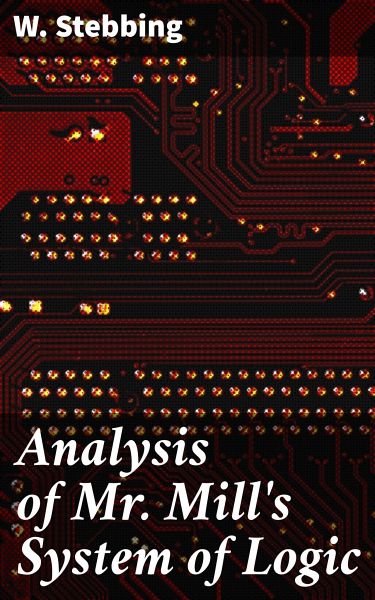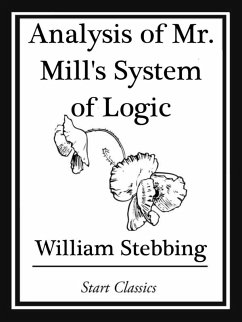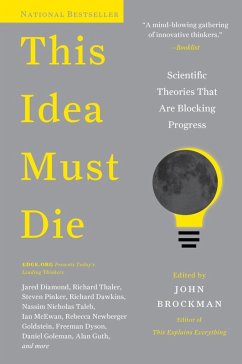
Analysis of Mr. Mill's System of Logic (eBook, ePUB)
A Scholarly Examination of Philosophical Logic and Critical Thinking
Sofort per Download lieferbar
0,49 €
inkl. MwSt.
Weitere Ausgaben:

PAYBACK Punkte
0 °P sammeln!
In "Analysis of Mr. Mill's System of Logic," W. Stebbing meticulously critiques and expands upon the foundational principles established by John Stuart Mill regarding deductive and inductive reasoning. Employing a rigorous analytical lens, Stebbing dissects Mill's methodology, exploring the nuances of logical inference and empirical validation within the broader context of 19th-century philosophical discourse. The text is characterized by its clarity and precision, reflecting the burgeoning intellectual climate of the time, influenced by the intersections of empiricism and rationalism, and res...
In "Analysis of Mr. Mill's System of Logic," W. Stebbing meticulously critiques and expands upon the foundational principles established by John Stuart Mill regarding deductive and inductive reasoning. Employing a rigorous analytical lens, Stebbing dissects Mill's methodology, exploring the nuances of logical inference and empirical validation within the broader context of 19th-century philosophical discourse. The text is characterized by its clarity and precision, reflecting the burgeoning intellectual climate of the time, influenced by the intersections of empiricism and rationalism, and responds to ongoing debates about the nature of knowledge and scientific inquiry. W. Stebbing, an eminent philosopher and logician, was heavily influenced by the prominence of logical positivism and the evolving ideas surrounding scientific method during his era. His academic pursuits, particularly at Cambridge, were marked by an engagement with the works of Mill, leading him to undertake this comprehensive analysis. Stebbing sought to bridge the gap between Mill's theories and contemporary philosophical challenges, demonstrating a commitment to advancing logical theory through critical engagement. This book is an indispensable resource for anyone interested in the development of logic and philosophy. Scholars, students, and enthusiasts alike will find Stebbing's analysis both enlightening and thought-provoking, offering fresh insights into Mill's legacy while fostering a deeper understanding of the complexities inherent in logical systems.
Dieser Download kann aus rechtlichen Gründen nur mit Rechnungsadresse in A, B, BG, CY, CZ, D, DK, EW, E, FIN, F, GR, H, IRL, I, LT, L, LR, M, NL, PL, P, R, S, SLO, SK ausgeliefert werden.













